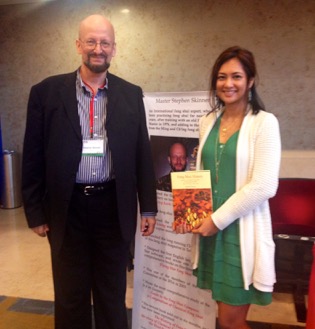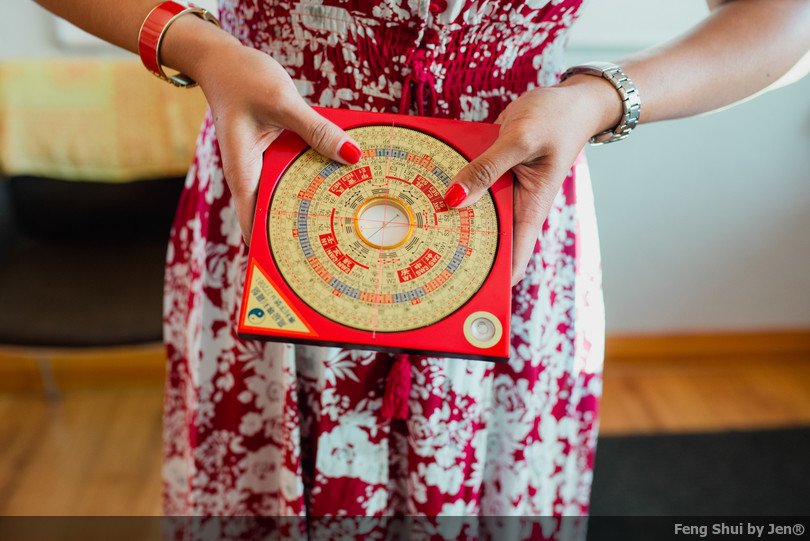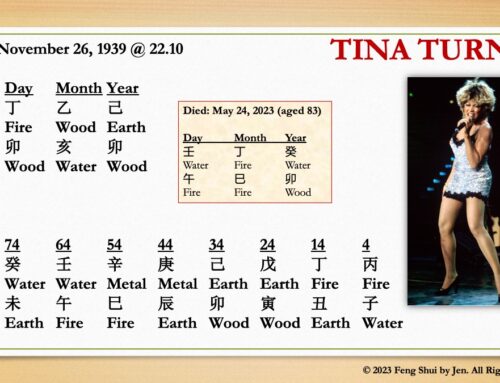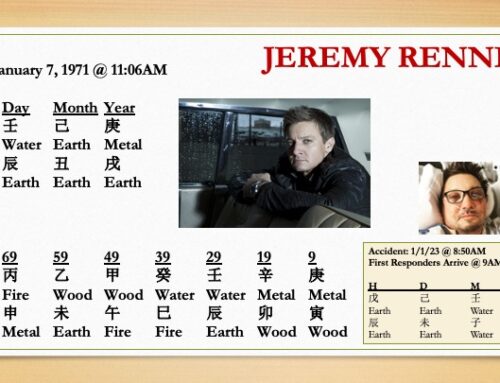What to Ask Before Hiring a Feng Shui Consultant
 When my mentor Grand Master Raymond Lo first introduced me to Dr. Stephen Skinner many years ago, I recall our brief exchange because it left a lasting impression on me. He asked where I was from. “The U.S.,” I said. Without a moment’s hesitation, he replied, “You should move to Asia.”
When my mentor Grand Master Raymond Lo first introduced me to Dr. Stephen Skinner many years ago, I recall our brief exchange because it left a lasting impression on me. He asked where I was from. “The U.S.,” I said. Without a moment’s hesitation, he replied, “You should move to Asia.”
For those who understand what I do for a living, that statement confirmed the challenges that I—and many others—face in the U.S. as a Classical Feng Shui practitioner. I share that story many times because practitioners, like myself, run into some major hurdles doing this kind of work. What’s more, it doesn’t help us at all when the mass population is miserably confused about what Feng Shui is all about.
Nevertheless, the concept of Feng Shui is not taboo. In fact, Feng Shui in the West is on the rise. More and more people are curious to learn about it and use it for themselves. And that’s great news!
Still, because the Feng Shui industry is not a strictly-regulated profession, almost anyone can claim to be a Feng Shui “consultant” or even “master.” The lack of a central governing body means that the professional standards of practitioners and endorsements of training programs are not regulated and monitored; therefore, they are not held to high or consistent standards. As a matter of fact, it is more common for so-called Feng Shui practitioners to have only taken a 2-day course. Sadly, this void allows the market to be saturated with amateurs and inexperienced beginners with mediocre skills, fancy biographies, and shiny marketing gimmicks.
The absence of standards damages the authenticity, image, reputation, and value that makes Chinese Feng Shui a powerful tool for everyone to embrace and enjoy.
 Many of my students know that in my own professional experience, there have been numerous occasions when new clients bemoan how they were either cheated or misled by their previous consultants, later learning that the consultant’s approach was flawed and inadequate or skill set was not up to par. This regrettably cripples their confidence that Feng Shui is real and valuable. And so, the need to help restore their faith and trust is ever more important—and needed.
Many of my students know that in my own professional experience, there have been numerous occasions when new clients bemoan how they were either cheated or misled by their previous consultants, later learning that the consultant’s approach was flawed and inadequate or skill set was not up to par. This regrettably cripples their confidence that Feng Shui is real and valuable. And so, the need to help restore their faith and trust is ever more important—and needed.
The level of expertise and experience of practitioners in the West varies enormously. There are those who apply nothing more than the 8 Mansion approach, a combination of 8 Mansion with Flying Star, limited Form School Feng Shui, and some are purely Black Hat (western) or a convoluted mixture of Eastern and Western. The degree of the consultant’s effectiveness in helping you achieve your life goals greatly depends on his or her level of knowledge and practical experience.
My advice is this: just as you would interview any other professionals like a financial advisor, attorney, doctor, or realtor, where you entrust them with your intimate details and personal concerns, you should do the same with a Feng Shui consultant. Do your homework, interview, and complete thorough research before engaging their services.
So, if you’re in the market to hire a professional, here are 11 questions to ask and consider:
-
What are your credentials or certifications?
Credentials are evidence of authority on the subject matter and anything that provides a basis for confidence that the person knows what he or she is doing and talking about. This often refers to academic or educational qualifications and/or professional certifications.
-
Who is your teacher?
Many practitioners outline a flashy biography on their website (sounding all too wonderful) but often neglect or purposely omit their teacher’s name. Stating a teacher’s name is like an imprint, or a signature. In the Feng Shui world, telling people who your “master” is offers a very telling indication of what lineage or school the consultant comes from.
-
Can I verify your educational background?
As mentioned earlier, since the profession is highly unregulated, marketing for Feng Shui is a free-for-all…and at times, a true work of fiction! To safeguard your financial—and emotional—investment, you should consider verifying their educational background by asking to contact their school or their teacher directly. This is the same practice you would use to verify references for any professional contractor.
-
Are you affiliated with any professional associations?
You shouldn’t rely on this alone, especially since there aren’t many organizations for the Classical Feng Shui community. The ones currently in place may be quite relaxed in their membership admissions and lack a solid monitoring system. Also, some excellent practitioners may opt not to belong to any organizations. Still, it is good practice to inquire.
Side Note: In case you’re wondering, Singapore’s International Feng Shui Association has been around since 2004 and was founded by a group of passionate grand masters, experts, and academics, including Grand Master Raymond Lo, Grand Master Dr. Stephen Skinner, Grand Master Tan Khoon Yong, Grand Master Vincent Koh, and the late Grand Master Yap Cheng Hai, to name a few. The organization prides itself on maintaining higher standards for its practitioners and members, including implementing a thorough qualification review of all its accredited Masters around the world. Soon, this organization will soon expand with an IFSA Chapter in the U.S.!
-
What kind of Feng Shui do you practice?
This is key. There are so many school of thought from Classical to Western to New Age. The subsequent evolution of Feng Shui from East to West often gets lost in translation, diluted over time to accommodate a culture that thrives on doing-it-yourself.

This question is almost imperative to ask. To educate yourself on this subject, you can refer to a recent essay I wrote for Feng Shui for Modern Living: Ancient vs. Modern Feng Shui: How the Western Evolution of Happy Got Classical Feng Shui All Wrong.
-
How many years have you been practicing?
Tons of people think they are Feng Shui experts simply because they’ve read tons of Feng Shui books for many, many years. But there’s a gargantuan difference between studying Feng Shui and actually practicing and consulting Feng Shui with the public. Professionals like medical doctors spend an abundance of time inside a classroom learning theories and studying case studies, but they are also required to complete their medical internship to accumulate the hands-on experience to apply—and practice—all that book knowledge. Competency is a combination of acquiring knowledge conceptually and natural learning through performance and practice.
-
Do you practice Feng Shui full-time?
Many people undertake Feng Shui as a side gig or to complement an existing career. The latter is quite common as many interior designers, architects, and real estate agents incorporate the knowledge of Feng Shui in their work. But very few actually do it on a full-time basis. While all scenarios are perfectly fine, this will also indicate how many cases or projects they have actually worked on or are exposed to. If their practice is dedicated to a full-time basis, then their workload will allow them to gain more practical experience.
-
Can you provide client testimonials or references for your past work?
Asking for client feedback can provide extremely valuable insight regarding the consultant’s business, and substantiate his or her quality of service, reputation, and credibility.
-
What accolades or special achievements do you have?
You will most likely find this information in their biography on their website. If they have listed any unique accolades or special achievements, authenticate by corroborating. For example, if the consultant is also a “master,” ask them to help you understand how they earned this title. Traditionally, the term “master” is bestowed, not self-entitled. Also, the difference between a consultant and a master means that the latter went through extensive training and years of practice and apprenticeship. But today, both terms are used interchangeably. Therefore, it’s always a good idea to substantiate their assertion. Remember, you are doing your due diligence to ensure this relationship is not only the right fit, but that you are also comfortable with the work they will be providing.
-
What can I expect during the consultation?
It’s always prudent to understand their process and come to a mutual agreement. This spells out expectations, timeline, and deliverables. You can also ask them if they provide the consultation in-person or remotely, work with a floor plan, provide additional services such as BaZi Destiny Reading or Auspicious Date Selection, include post-consultation support, receive a written report, and how they can be a source to help meet your needs. Getting all this upfront will ensure both parties have a clear understanding.
-
What are your fees?
Again, there are no set rules when it comes to regulating fees. You’ll find some practitioners charge as little as $150 (which is usually indicative of their limited knowledge and experience) to as high as $5,000. Typically, rates are set to market based on location and experience. Some practitioners also charge a fixed rate, while others may charge by the square footage of the space. The fee structure is very subjective. But when you’re performing your due diligence, compare rates with the consultant’s background. If a consultant has been practicing for two years but charging the same rate as someone who has been around for much longer (based on the questions above), then you’ll be able to gauge the difference. I must also caution you against basing your decision on price alone. Remember, you will often get what you pay for!
Conclusion:
Bookstores and the internet are fabulous places to obtain information, but there is no substitute for a professional consultation, especially one that is uniquely tailored to you and your space. Ask lots of questions, educate, and choose wisely. Finally, ask around. Word-of-mouth is still the purest form of referral. Good luck!
If you have any questions about wanting to engage in a consultation, click HERE to inquire.
Copyright © 2018 | Feng Shui by Jen LLC | All Rights Reserved | Materials may not be copied, translated, or distributed without prior written consent.





